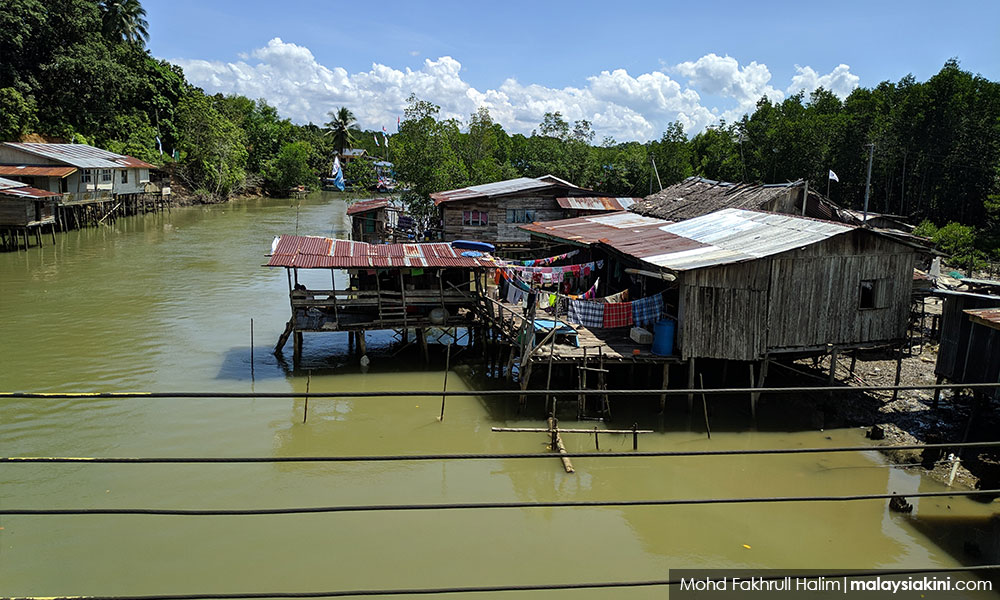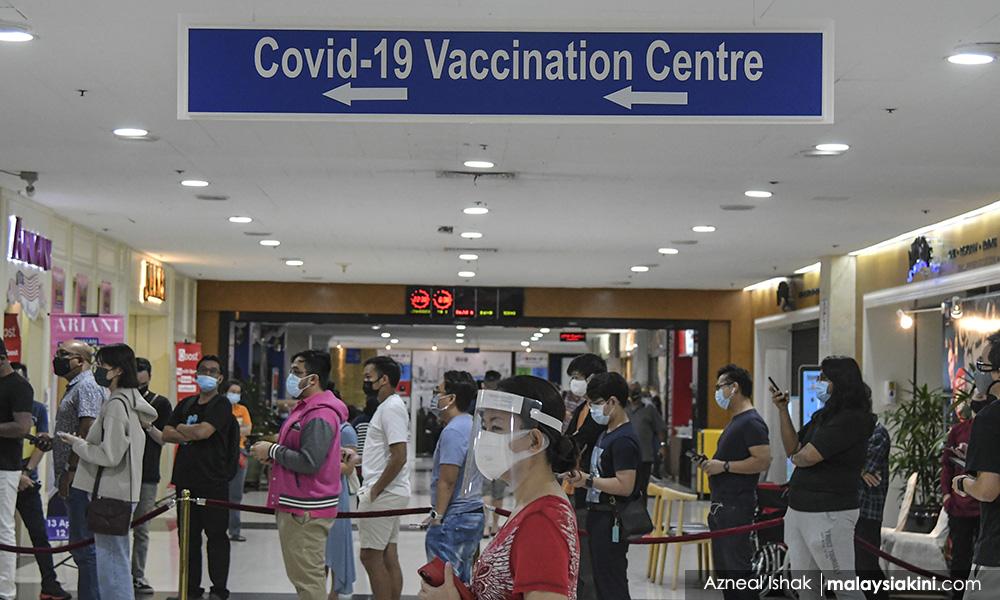As states and the federal government bicker over whether states can purchase vaccines and accept donations of vaccines, millions of Malaysians are being held hostage to a too slow process in vaccine disbursement. Ordinary people are on the shore, watching a storm with waves crashing and hoping that they will remain safe.
Over the past few months, Sarawak and Selangor have taken the lead to push for states to procure their own vaccines, with Sarawak’s state government being the first to secure a deal and federal approval for 500,000 doses of Sinovac.
That state governments have to procure vaccines is testimony to the floundering federal vaccination program. These purchases also showcase the importance of the initiatives by state governments to prioritise the health and well-being of those in their own state. They extend a much-needed process of decentralisation of power to state governments and enhance Malaysia’s effort toward combatting Covid-19.
In all of these discussions, the hardest-hit state in Malaysia’s pandemic Sabah has been missing. The land below the wind suffered brutally in the country's third Covid wave and is still recovering.
Covid-19 exposed the weaknesses of the health system in Sabah (still comparatively seriously under-resourced along with that of Sarawak) and faces the challenge of including large numbers of irregular migrants, who lack trust in authorities and whom they themselves face stigma.
Time for proactive action
We argue that it is necessary for the Sabah government to step up by purchasing vaccines in order to protect lives and resuscitate its economy. It must adopt approaches in vaccination that reflect Sabah’s unique conditions, including using its local networks and working with civil society, to reach out to the disparate, diverse and vulnerable communities in the state.
Sabah cannot be dependent on the federal programme. Within three months from late February through May 9, the World Health Organisation reported that only 2.85 percent of the adult population (estimated at 23.7 million people) have been given two doses of a Covid-19 vaccine.

Simple arithmetic implies that the federal government would take roughly one year to fully vaccinate three million Malaysians above 18 years old. At this snail pace, it would take seven years and a half to fully vaccinate the nearly 24 million Malaysian above 18 years!
Sabah has long been neglected and has reason to be concerned that it will not receive vaccines in a timely manner. Based on current population projections, Sabah has 2.8 million people above 18 years old.
If all were to be fully vaccinated it would take only one year and three months for it to be completed. If the Sabah spirit of cooperation was engaged in a truly whole-of-Sabah approach it could be less than a year.
Economic lifeline
The need is pressing. Sabah’s economy, already weakened by a decline in oil palm prices and dependent on tourism before the pandemic, was devastated by Covid-19. The costs of lockdowns through loss of productivity through 2020 along amounted to an estimated RM2.581 billion for Sabah alone.
Elsewhere Malaysia as a whole experienced an estimated daily loss of RM2.4 billion during lockdowns. Sabah was particularly hard hit as its lockdown was longer and even more impactful.
Unemployment skyrocketed. Through April of this year, the number of unemployed Sabahans is estimated to reach nearly 200,000 or a quarter of all estimated jobless in Malaysia (800,000 and counting).
When the Sabah state opted for a conditional MCO rather than the more restrictive MCO it was cognisant of the economic hardship being experienced through the lockdown measures.
This lack of employment is especially impactful as Sabah’s population is young and vulnerabilities are widespread across the society. Beyond incomes, high unemployment chokes opportunities for social mobility.
Affordable Investment
The Sabah government can afford it. Like the previous two-term BN-Umno rule and short-lived Warisan/Pakatan Harapan administration, the present Gabungan Rakyat Sabah (GRS) government adheres to sound fiscal policy running a budget surplus of more than RM190 million (total revenue RM4.1 billion exceeded expenditure of RM4.09 billion).
In addition, Sabah’s Balance of Trade is in a surplus of RM2.5 billion. There are the funds to spend. This crisis is exactly the time to withdraw these savings and take this opportunity to buy vaccines, to invest in the wellbeing of Sabah.

The estimated cost for vaccinating our adult population is between RM224-280 million, depending on the vaccine purchased. The Pfizer vaccine is estimated to cost RM70 per dose, while other vaccines such as AstraZeneca and Sinovac are cheaper at RM50 per dose, plus RM30 for private insurance such as Blue Cross Blue Shield or Oscar Health which provides coverage against side effects.
The costs of transportation and distribution are additional. These added costs must be transparent and minimised in the interest of the public. Through coordination and collaboration with civil society and the federal government and with creativity in the use of mobile vaccine units (with appropriate refrigeration), the distribution effort can be managed with reasonable costs.
This investment is small compared to the total Sabah GDP of RM82 billion (at the end of 2020). Now is not the time to take advantage of public funds when there is a crisis, but to work together for the Sabah.
Whole-of-Sabah Approach
A "whole-of-Sabah" approach needs its leaders to lead, to vaccinate themselves. This practice should also be extended to local communities, to include village, community and religious leaders.
As the low registration rate shows, there is considerable caution among the Sabah public, with emotions ranging from fear and distrust to confusion and ambivalence.
Some cannot see the benefits of vaccination, especially with the prevalence of misinformation about the vaccines. These reasons stem from a lack of faith in government to resolve its problems to understandable hesitancy among citizens who have never been vaccinated before or were only vaccinated as a child and cannot recall the experience.
Confidence-building measures in the vaccine process are needed, especially for the vulnerable communities that may have higher distrust. To ameliorate vaccine hesitancy, civil society must be included in any vaccine drive.
Earlier waves of Covid-19 showed the costs of inadequate proactive measures for Sabah. Investing in injections now will save lives and inject much-needed funds into a recovery.- Mkini
JAMES ALIN, an economist, is a Senior Lecturer in the Faculty of Business, Economics, and Accountancy at Universiti Malaysia Sabah.
TRIXIE TANGIT, an anthropologist, is a Senior Lecturer in the Faculty of Humanities at Universiti Malaysia Sabah.
BRIDGET WELSH is a Senior Research Associate at the Hu Fu Centre for East Asia Democratic Studies and a Senior Associate Fellow of The Habibie Centre. She currently is an Honorary Research Associate of the University of Nottingham, Malaysia's Asia Research Institute (Unari) based in Kuala Lumpur. She tweets at @dririshsea.
The views expressed here are those of the author/contributor and do not necessarily represent the views of MMKtT.




No comments:
Post a Comment
Note: Only a member of this blog may post a comment.